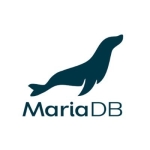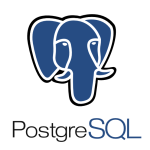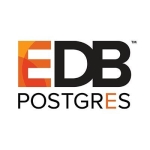
Infrastructure Expert at a tech services company with 51-200 employees
MySQL is a database system that is most used, fast, more reliable, cheaper, and better than any other database system.
What is most valuable?
It has a relational database system.
Client/Server Architecture
SQL compatibility (Structured Query Language) .MySQL has the features of the current SQL standard (at the moment SQL: 2003).
SubSELECTs: From version 4.1, MySQL is capable of processing a query in the form of SELECT * FROM tablename1 WHERE x IN (SELECT y FROM tablename2).
MySQL supports views from MYSQL version 5.0.
Stored procedures: Is capable of storing codes: MySQL has supported SPs since version 5.0.
Triggers: MySQL has supported triggers in a limited form from version 5.0
Unicode: MySQL has supported all conceivable character sets since version 4.1, including Latin-1, Latin-2, and Unicode (either in the variant UTF8 or UCS2).
User interface: There are a number of convenient user interfaces for administering a MySQL server.
Full-text search: Full-text search simplifies and accelerates the search for words that are located within a text field. If you employ MySQL for storing text (such as in an Internet discussion group), you can use full-text search to simply implement an efficient search function.
Has got statement-based replication.
It's one of the simplest ways to create databases.
What needs improvement?
DELETE and UPDATE statements that use a LIMIT clause without an ORDER BY are non deterministic.
Statements using any of the following functions cannot be replicated properly using statement-based replication: LOADFILE (), USER ().
Disclosure: I am a real user, and this review is based on my own experience and opinions.
Senior Manager of Data Center at a integrator with 51-200 employees
One of the best open source database for web developers and application enthusiasts
Valuable Features:
The best features in MySQL, making it one of the most used databases globally, are-
1) Multi-threaded architecture for multiple CPU utilization and kernel threading
2) Use of triggers and crash recovery techniques
3) Indexed Conditional Pushdown
4) Integration with LAMP/WAMP
5) Easy setup with Memcached for increasing performance and scalability
Room for Improvement:
Few cons in MySQL are
1) Increased complexity in InnoDB
2) Slower performance when using InnoDB as compared to MyISAM for using simple queries
3) Only identical MyISAM tables can be merged.
4) No active directory integration as in SQL server
5) It does not support check constraints
Other Advice:
MySQL is indeed the world's most popular open source database. It has been designed on the hyper threading infrastructure and supports multi-threaded architecture for using multiple CPU's. It works on index compression with B-Tree disk tables popularly known as MyISAM. Its efficiency depends on the implementation of SQL functions with optimization of library classes.
Disclosure: I am a real user, and this review is based on my own experience and opinions.
MySQL is platform independent and can be installed on windows, linux and other OS too. It is an open source database under the GNU General Public License, that means developers can use it at no cost as long as the associated projects are also open source.
Buyer's Guide
MySQL
March 2025
Learn what your peers think about MySQL. Get advice and tips from experienced pros sharing their opinions. Updated: March 2025.
844,944 professionals have used our research since 2012.
Lead Project Manager, Owner at a tech services company with 11-50 employees
Ubiquitous solution for a wide variety of uses.
Pros and Cons
- "The feature that I have found most valuable is its ubiquity. MySQL is everywhere, so if I need to find a developer to do things to it that I don't know, it's very easy to find someone who has expertise in it."
- "It could be a little bit simpler to use."
What is our primary use case?
We use it for my clients. Basically any website that uses WordPress uses MySQL, so we use that to manage and run our WordPress websites. Some we have on a cloud, some we have at hosted servers.
It is part of WordPress and some clients are using it for eCommerce, and others are just using it as part of the website to give information.
What is most valuable?
The feature that I have found most valuable is its ubiquity. MySQL is everywhere, so if I need to find a developer to do things to it that I don't know, it's very easy to find someone who has expertise in it.
What needs improvement?
In terms of what could be improved, there is not anything that I can think of offhand.
Everything related to automation or improvements are external tools that are brought into it, so it has nothing to do with the robustness of the system itself - it is the developers and implementations that touch it. Those can be improved, but MySQL itself is fine as is.
I would just say that it could be a little bit simpler to use.
For how long have I used the solution?
I've been using MySQL off and on for about seven years.
Different hosting systems have different iterations of it. Whenever possible, I try to use the latest version, but usually I'm using a model or two back. But I'm not using the original, not by any stretch.
What do I think about the stability of the solution?
Everything that works with MySQL is stable. If it's a bug, it's due to the developer who has miswritten a piece of code. The code itself is perfect. It's the application of people who attempt to make changes where the issues come in.
What do I think about the scalability of the solution?
In terms of scalability, I have not done anything bigger than a couple hundred people a day on a site, so I really couldn't tell you about that.
Our clients are small businesses, almost all of them with less than 50 employees.
Which solution did I use previously and why did I switch?
Previously, and I am talking almost 20 years ago, we would have used Microsoft Access, which is not a relational database and it's not iterative, so you can't have multiple people working on it, whereas MySQL is a system-based database, so multiple people can access it at the same time.
How was the initial setup?
In terms of the initial setup, you definitely need to know what you're doing, but it's not illogical. The database rules and how they work are very clear and concise. To execute MySQL is fairly straightforward.
What's my experience with pricing, setup cost, and licensing?
MySQL is open source so it's free.
What other advice do I have?
My advice to anyone considering MySQL is to check the forums and do your homework.
On a scale of one to ten, I would give MySQL a 9. It would be a 10 if it was simpler to use, but as it is, it's about a 9.
Disclosure: I am a real user, and this review is based on my own experience and opinions.
Senior System Administrator at Debre Markos University
A stable, scalable, easily installable solution which boasts ease of use and good performance
Pros and Cons
- "I am totally satisfied with MySQL."
- "The solution could have better integration and security features."
What is our primary use case?
We use the solution for our applications, as a management system. We utilize it as an operator or relational database.
What is most valuable?
I am totally satisfied with MySQL. I like its performance, ease of use, stability and scalability.
What needs improvement?
The solution could have better integration and security features.
For how long have I used the solution?
I have been using MySQL for more than five years.
What do I think about the stability of the solution?
The solution is stable.
What do I think about the scalability of the solution?
The solution is scalable.
How are customer service and technical support?
I have no experience with tech support.
Which solution did I use previously and why did I switch?
We did not use another solution prior to the current one.
How was the initial setup?
Installation is easy. It takes about 20 minutes.
What about the implementation team?
One can do the installation on his own.
Our team involved 15 people.
What's my experience with pricing, setup cost, and licensing?
There is no licensing fee.
What other advice do I have?
I believe there are 100 users making use of the solution in our organization.
I would recommend this solution to others.
Disclosure: I am a real user, and this review is based on my own experience and opinions.
Founder at Art World Web Solutions
Easy to integrate and reasonably priced but the memory consumption needs to be improved
Pros and Cons
- "The connectivity with PHP is quite good."
- "On the database side, it should be really lightweight, and the data structure should be like MongoDB."
What is our primary use case?
We use this solution for the database.
What is most valuable?
The connectivity with PHP is quite good.
It is easy to integrate, and the fees are less than Oracle and other services.
What needs improvement?
MySQL is good but it should be able to handle the large transaction levels that Oracle can. It should be able to manage large amounts of data. We have experienced some issues when we are handling a large amount of data in MySQL.
The memory consumption it's using is very high at times, and the default parameter settings are not quite good automatically. We need to tweak the configuration as per the requirements. This is an area that can be improved by giving some guidelines and direction.
On the database side, it should be really lightweight, and the data structure should be like MongoDB.
It should put less load on to the memory and it should be able to handle maximum data.
For how long have I used the solution?
I have been working with MySQL for approximately five years.
What do I think about the stability of the solution?
The solution is stable but there is an issue with memory consumption at times.
How are customer service and technical support?
I have not contacted technical support. I am using MySQL with Zabbix and when I have an issue, I contact Zabbix who resolves the issues on their end.
How was the initial setup?
I am a developer and I handle the other side of things. I rely on the DB team to handle the maintenance and deployment. My knowledge is very basic.
What's my experience with pricing, setup cost, and licensing?
It's cheaper than other solutions.
What other advice do I have?
For one level of data, you can use MySQL. However, for large amounts of data, you will have to find other databases.
Overall, it's a good solution.
I would rate MySQL a six out of ten.
Which deployment model are you using for this solution?
On-premises
Disclosure: I am a real user, and this review is based on my own experience and opinions.
Data Architect at ACPAS Loan Management Software
Easy to use, easy to deploy, and stable with useful table partitioning feature
Pros and Cons
- "Table partitioning is most valuable. It is easy to use."
- "I am looking for the Temporal SQL feature, which basically means that there is complete history for each table. This feature is currently available in MariaDB. PostgreSQL has something called a foreign-data wrapper, which is another way to access external data from inside. MySQL could have a similar feature."
What is our primary use case?
We are using it for RADIUS protocol, which is for network access. We are tracking the duration of user stations.
What is most valuable?
Table partitioning is most valuable. It is easy to use.
What needs improvement?
I am looking for the Temporal SQL feature, which basically means that there is complete history for each table. This feature is currently available in MariaDB.
PostgreSQL has something called a foreign-data wrapper, which is another way to access external data from inside. MySQL could have a similar feature.
For how long have I used the solution?
I have been using this solution intermittently for six months.
What do I think about the stability of the solution?
It is stable.
What do I think about the scalability of the solution?
It is scalable. We currently have six users.
How are customer service and technical support?
I don't have any experience with their technical support.
How was the initial setup?
Its initial setup was straightforward. It took 10 minutes.
What about the implementation team?
I did it myself. We have two people for its deployment and maintenance.
What's my experience with pricing, setup cost, and licensing?
I am not paying, but I am not sure about the exact licensing requirements.
Which other solutions did I evaluate?
It is always compared with PostgreSQL and Microsoft SQL Server.
What other advice do I have?
I would recommend this solution to others. I plan to keep using it.
I would rate MySQL an eight out of ten.
Which deployment model are you using for this solution?
On-premises
Disclosure: I am a real user, and this review is based on my own experience and opinions.
Senior Database Administrator Engineer at a comms service provider with 10,001+ employees
Easy to set up but the stability needs to be improved
Pros and Cons
- "It was easy to install."
- "Stability needs improvement and the backup needs to be enhanced."
What is our primary use case?
We only support the backend and only carry it as a database. You can do what you want on the database to create the schema and to manage the rest of the organization.
What needs improvement?
Errors that come from MySQL need to be more clear. In Oracle, for example, you have the aura and you have numbers, you can easily find the error. MySQL should follow the same as in Oracle.
Stability needs improvement and the backup needs to be enhanced.
For how long have I used the solution?
We have been using MySQL for years.
We are using the latest version. Normally we do upgrades and we follow the upgrade path.
What do I think about the stability of the solution?
It could be more stable.
What do I think about the scalability of the solution?
We have 15 customers, but I am not sure of the number of users we have.
How are customer service and technical support?
I have not dealt with technical support.
How was the initial setup?
It was easy to install. It only took ten minutes.
We have a huge database team as we are supporting many regions.
What about the implementation team?
We implemented this solution ourselves.
What other advice do I have?
We plan to continue using this product. It's good, and I can recommend it to others.
I would rate this solution a seven out of ten.
Which deployment model are you using for this solution?
Hybrid Cloud
Disclosure: My company has a business relationship with this vendor other than being a customer: Partner
Senior Data Analyst at Charutarhealth Org
Easy to set up, stable, and good technical support
Pros and Cons
- "The replication feature is the most valuable. We are replicating our servers."
- "It should have some code analytical functions. It can also have a monitoring tool."
What is our primary use case?
We are interfacing it with MicroStrategy. There are ODBC connections. We have 10 to 12 users in our company.
We are assessing the possibilities of moving to the cloud. We are not yet sure if we are going to move to the cloud.
What is most valuable?
The replication feature is the most valuable. We are replicating our servers.
What needs improvement?
It should have some code analytical functions. It can also have a monitoring tool.
For how long have I used the solution?
I have been using MySQL for ten years.
What do I think about the stability of the solution?
It is stable. We are not dealing with a huge database. Our database is not more than 1 TB, so we didn't find any problem.
What do I think about the scalability of the solution?
I haven't seen a need for scalability.
How are customer service and technical support?
Their technical support is good.
How was the initial setup?
The initial setup is easy. We are using it on Linux, and our server is on CentOS.
What other advice do I have?
I would recommend this solution. I would rate MySQL a nine out of ten. I find it almost perfect.
Which deployment model are you using for this solution?
Private Cloud
Disclosure: I am a real user, and this review is based on my own experience and opinions.
Buyer's Guide
Download our free MySQL Report and get advice and tips from experienced pros
sharing their opinions.
Updated: March 2025
Popular Comparisons
MariaDB
PostgreSQL
Firebird SQL
Faiss
InfluxDB
OpenSearch
Milvus
SQLite
EDB Postgres Advanced Server
Percona Server
YugabyteDB
Oracle MySQL Cloud Service
Buyer's Guide
Download our free MySQL Report and get advice and tips from experienced pros
sharing their opinions.
Quick Links
Learn More: Questions:
- Which solution do you recommend for embedding reporting? Why?
- Did you switch from a different solution to MySQL? Can you list a few pros and cons for making the move?
- Why are MySQL connections encrypted and what is the biggest benefit of this?
- Considering that there is a free version of MySQL, would you invest in one of the paid editions?
- What is one thing you would improve with MySQL?
- How does MySQL compare with Firebird SQL?
- When evaluating Open Source Databases, what aspect do you think is the most important to look for?
- Did you switch from a different solution to MySQL? Can you list a few pros and cons for making the move?
- Which database is the best for session cashing?
- Why is Open Source Databases important for companies?















It is the easiest to use and simplest to learn. The coding is just simple.